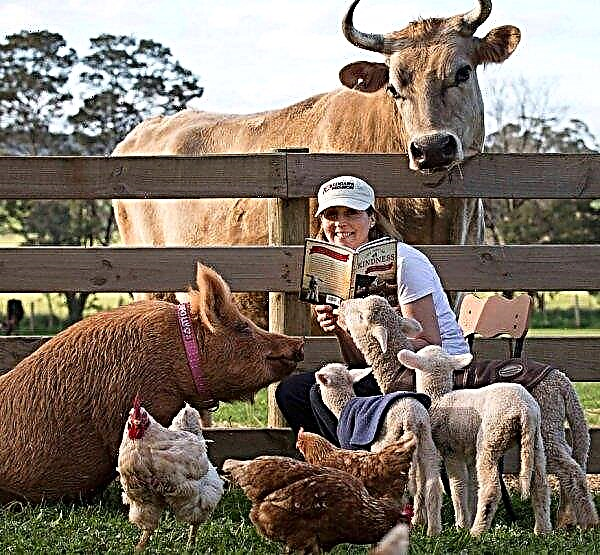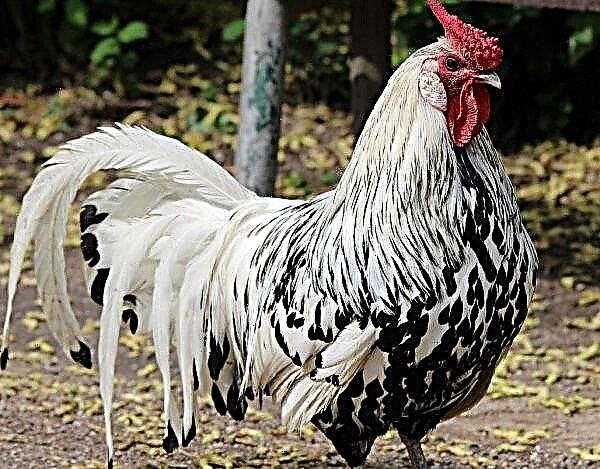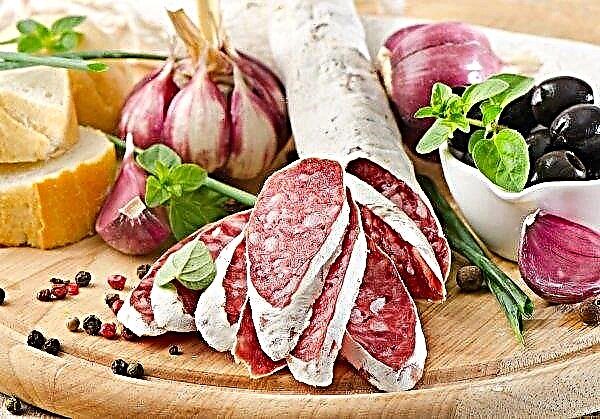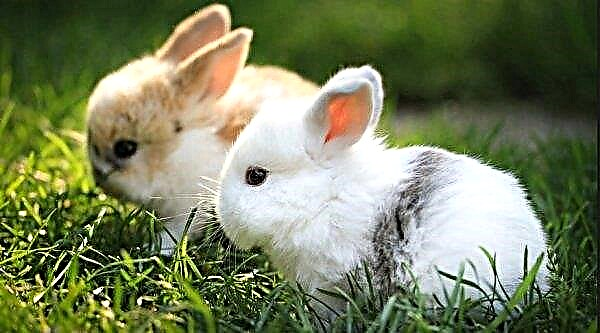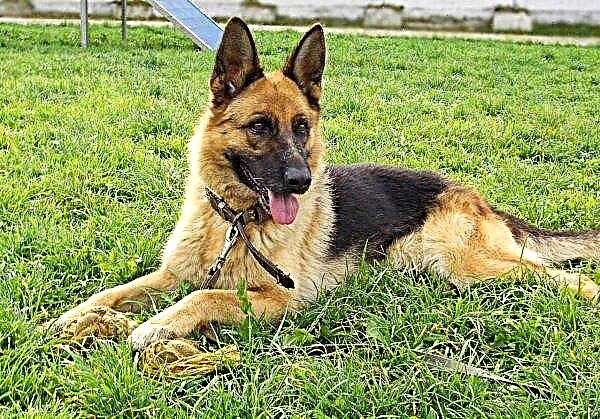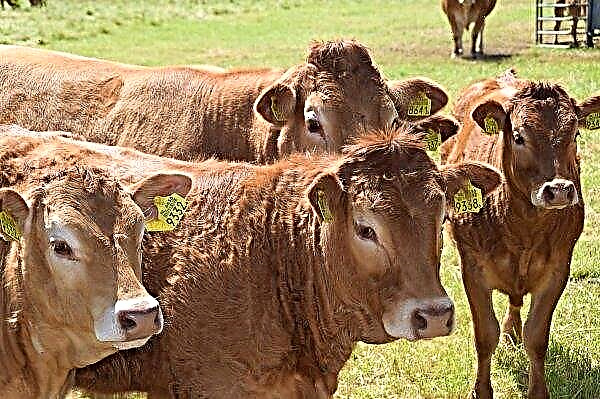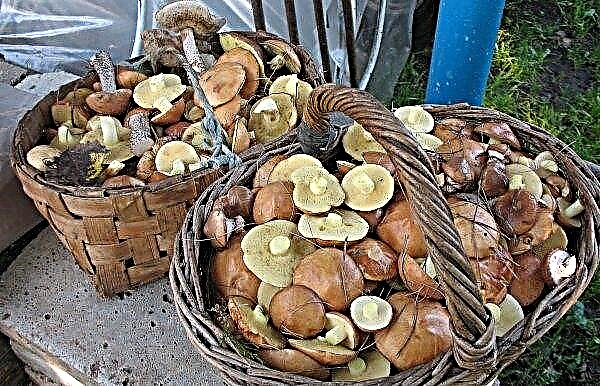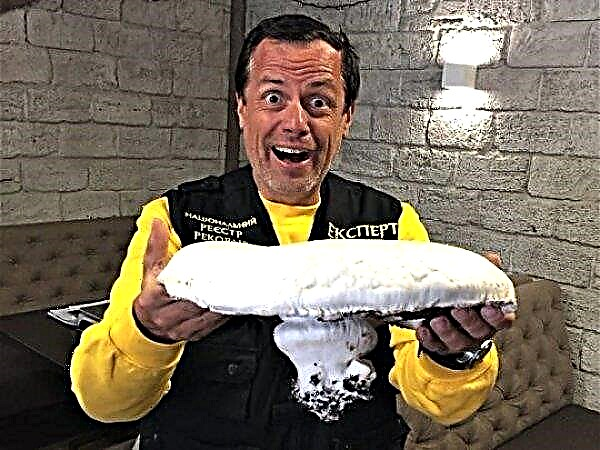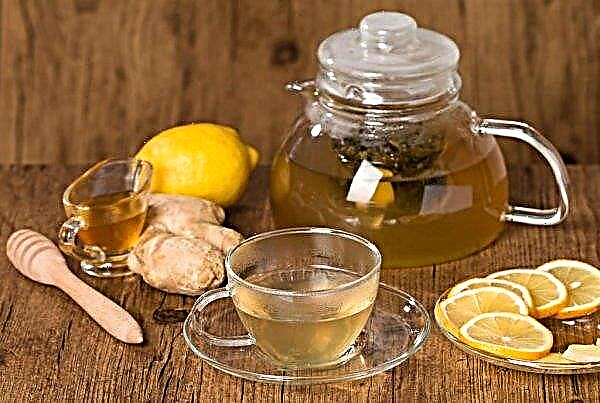Sometimes just good conditions for keeping birds are not enough. Climate and heredity are factors that should be considered, especially when it comes to a high mortality rate among your pets. After hatching, some turkeys may die immediately. And that will be fine. This is how natural selection works, despite attempts to create more laboratory conditions. But there are frequent cases when birds die 1.5-2 months after hatching. This article will help you find out the reasons why poultry die.
Why turkey poults die: main reasons
When a bird massively dies even at the age of 3 months, it is worth contacting a veterinarian. Unsuitable water may cause this. However, there are a sufficient number of other reasons, namely: inappropriate conditions of detention, various diseases (pyelonephritis, paratyphoid, pullorosis). To understand the problems, it is necessary to establish what exactly turkey poultry can die from, and how to avoid it.
To understand the problems, it is necessary to establish what exactly turkey poultry can die from, and how to avoid it.
Unsuitable conditions
To make the bird comfortable, good conditions are needed. You need to regularly look after them, check the air temperature and even humidity, adjust the lighting.
Comfortable conditions for turkey poults are:
- Temperature. In the first days after hatching, the temperature should be maintained within + 30-33 ° C. After 10 days, it must be reduced to + 20-22 ° C.

- Lighting. Fluorescent lamps (significantly save energy) with a green or blue tint. They are hung above the location of birds at a height of 1.5-2 m. Lighting should be constant, so turkey poults will grow faster.
- Heaters. They can not be used, otherwise the humidity will be worse.
- Content with other bird species. It is forbidden, otherwise fights or the appearance of diseases are possible.
- Area. The place for keeping should be spacious in order to prevent accuracy and crush.
Poor maintenance also entails cannibalism (turkeys will mutilate each other or kill each other). Typically, this behavior indicates poor nutrition, lack of or an excess of protein.
Diseases
From the very first day after hatching, turkeys are subject to many dangers. Among them are various diseases that all young animals can “mow”. With some diseases, birds can live up to 4 months. But do not forget that any infection or medicine can affect the quality of meat or on further offspring. That is why it is worth knowing about the first signs of the most common diseases among turkeys.
Did you know? Turkeys have a very strong stomach. Large ones can even digest glass. But this does not mean that they can easily cope with diseases.
Pyelonephritis
Astroviral infection - this is another name for the disease. It affects the intestines. This disease is characteristic not only for turkey poults, but also for ducklings, goslings, broiler chickens and guinea fowls. If it turns out that the turkey poults began to die due to pyelonephritis, check the remaining birds. Pyelonephritis affects the bird in the very first days after hatching and can develop for a long time.
Symptoms that occur on the 7-12th day of infection include:
- excitability;
- yellow or dark yellow droppings;
- lack of appetite or its decrease.
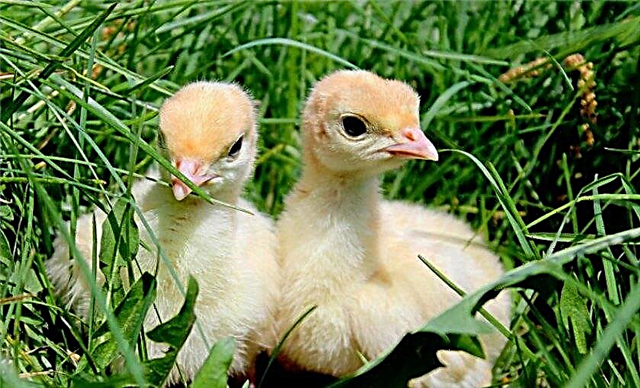
Newcastle disease
A disease that is not treated and is difficult to tolerate by the bird. Another name is Asian plague. This is a viral disease that is also characterized by accompanying pneumonia.
Symptoms are as follows:
- feet fail;
- diarrhea;
- bad smell;
- sleep a lot;
- refusal of food.
Important! For humans, Asian bird plague is not dangerous. However, in contact with an infected bird it is worth being cautious. Conjunctivitis may occur.
Respiratory Mycoplasmosis
The disease is also called sinusitis. Very similar to a common cold in a person. In the case of respiratory mycoplasmosis, treatment is possible, but sometimes it is too late.
It will be useful for you to read
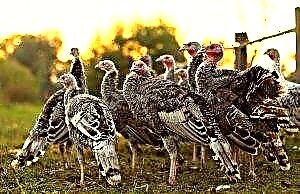
Symptoms are as follows:
- wheezing
- discharge;
- cough;
This disease often appears in the neighboring relatives of turkeys - guinea fowls. It aggravates the condition of birds and poorly ventilated premises.
Paratyphoid
The disease may occur in the first month after hatching. With this disease, young animals may not survive for three months. All signs are difficult to notice, spreads quickly. Treating paratyphoid fever is also difficult.
If you notice any of the symptoms listed below, then contact your veterinarian:
- lethargic;
- weak
- drowsiness;
- bonding of the eyelids;
- legs are moving apart;
- constant thirst;
- lack of weight and loss of appetite.
Pullorosis
A bacterial disease that affects the intestines of turkey poults. Among adult birds, degeneration of ovarian follicles may occur. Salmonella - the causative agent of the disease pullorosisPullorosis is also called "avian salmonellosis" because the causative agent of the disease is Salmonella pullorum-gallinarum.
Salmonella - the causative agent of the disease pullorosisPullorosis is also called "avian salmonellosis" because the causative agent of the disease is Salmonella pullorum-gallinarum.
There are two possible variants of salmonellosis infection. The first is congenital, when the pathogen penetrates directly into the egg during its formation or passage through the genital tract. The second is postanal. It means that the chick got infected after hatching from already sick relatives.
The disease is expressed as follows:
- open beak breathing;
- impaired coordination of movements;
- weakness;
- stand on legs wide apart.
Did you know? Salmonellosis is one of the four main causes of diarrheal diseases worldwide.
What to do and how to treat diseases
If young growth began to die for no apparent reason, then consult a specialist. Sometimes it is impossible to notice insignificant symptoms of dangerous diseases that “mow” not only turkey poultry, but also other birds or animals. However, if for some reason you cannot consult a veterinarian, then use broad-spectrum antibiotics. For example, furazolidone. The medicine has an antimicrobial effect. It especially helps with paratyphoid fever. Aminoglycosides or tetracyclines can be used in conjunction with the medicine. This is the first aid. Lozeval is a drug that effectively fights infectious diseases of birds and is used to prevent them. It helps to increase the body's resistance to infections. The drug also copes well with paratyphoid.Tetracycline, Levomycetin and Furacilin are used to treat pullorosis, which does not allow turkeys to live even a month, and Furazolidone will also be required to get rid of respiratory mycoplasmosis.
Lozeval is a drug that effectively fights infectious diseases of birds and is used to prevent them. It helps to increase the body's resistance to infections. The drug also copes well with paratyphoid.Tetracycline, Levomycetin and Furacilin are used to treat pullorosis, which does not allow turkeys to live even a month, and Furazolidone will also be required to get rid of respiratory mycoplasmosis.
Disease prevention
In order for young animals to reach 2 months of age, the following preventive measures should be observed:
- vitamins A and E. Do not forget about vitamin D, which helps to build the skeleton of turkey poults. Vitamin B will affect the nervous system of birds and will improve their condition in winter. Vitamins can be given as additional food, or can be used together with the main food;
- timely vaccination. It will not only protect young animals from diseases, but also make immunity stronger. It is especially important to conduct it in production, where it is impossible to monitor each individual chick.
- disinfection of the incubator and the house.
- good nutrition;
- hatching separately from other birds;
- compliance with lighting and temperature regulations in the incubator and poultry house.
- regular inspection by a veterinarian.
Important! Discuss all manipulations with medicines and birds with a veterinarian beforehand so as not to harm your feathered ward.
Extra Care Tips
In order to prevent diseases that can kill all birds, pay attention to small details.
For instance:
- If the tummy of the poultry is inflated, this may be the very first sign of an intestinal infection.
- Nutrition and so that the temperature does not rise.
- Do not leave young animals in the draft or allow cold temperatures after swimming.
- Do not save on feed.
- Choose a quality litter in the house.
- Do not let conflict situations in the house run by chance. Any injury after a fight can be dangerous.
- Change water as often as possible.
 If you approach the issue of breeding turkeys correctly, then there will be no problems. Do not be afraid to seek advice from more experienced farmers or veterinarians. Always consult with specialists. In breeding birds, it is better to learn from the mistakes of others than from your own, because the extinction of young animals is always significant financial loss.
If you approach the issue of breeding turkeys correctly, then there will be no problems. Do not be afraid to seek advice from more experienced farmers or veterinarians. Always consult with specialists. In breeding birds, it is better to learn from the mistakes of others than from your own, because the extinction of young animals is always significant financial loss.


